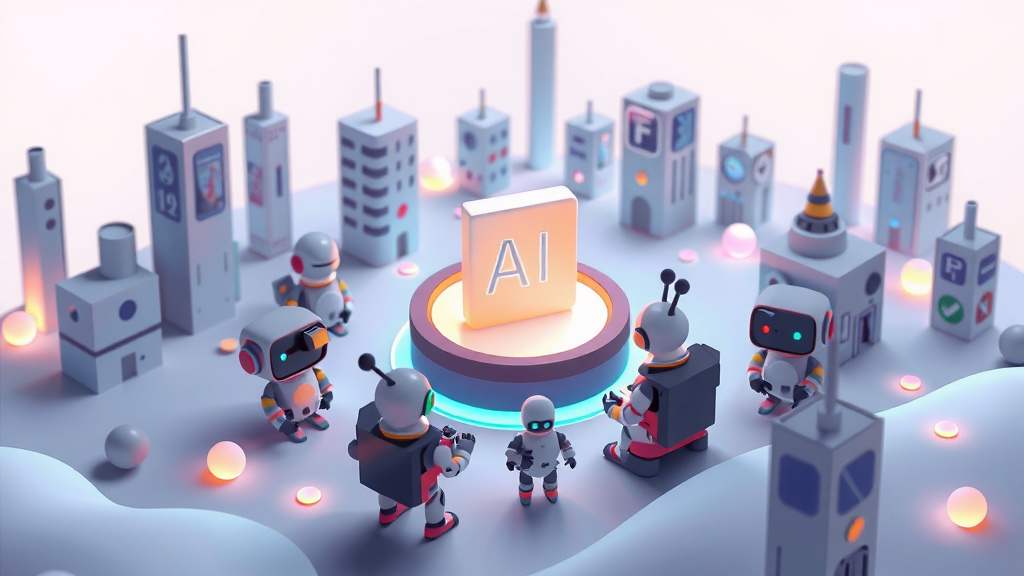The rapid evolution of artificial intelligence is transforming various aspects of our lives, from education and law enforcement to national security and workforce development. Recent developments in the field have sparked both excitement and concern, highlighting the need for responsible AI adoption and usage. This news brief delves into the latest advancements, challenges, and implications of AI, exploring its potential to revolutionize industries and improve lives.
New AI Course at University of Washington
The University of Washington's Center for an Informed Public has introduced a new course, 'Modern-Day Oracles or Bullshit Machines?', which focuses on the impact of AI on society. The course, designed by Carl Bergstrom and Jevin West, aims to equip students with the skills to navigate a world dominated by AI. It consists of 18 online lessons, each approximately 5-10 minutes long, and is available to students with and without a technical background.
Ex-Google Engineer Charged with Espionage
A former Google software engineer, Linwei Ding, has been charged with stealing AI trade secrets to benefit Chinese companies. The US Department of Justice has accused Ding of economic espionage and theft of trade secrets, alleging that he uploaded over 1,000 confidential Google files to his personal Google Cloud account. If convicted, Ding faces up to 175 years in prison and significant fines.
AI in Law Enforcement
The use of AI in law enforcement has raised concerns about accuracy and bias. A recent case in which a man was wrongly jailed for 17 months due to a faulty AI-powered facial recognition system has highlighted the need for caution. The system had misidentified the suspect, leading to a wrongful conviction.
Partnership for AI Education
The California State University system has partnered with tech giants, including Microsoft and Google, to provide AI-powered tools to its students and faculty. The partnership aims to enhance learning, teaching, and research, making CSU the first AI-powered university system in the US.
AI in Classrooms
AI is being introduced in Tampa classrooms, with a local company providing an AI model designed for teachers and students. The model, called BaxterBot, has received positive feedback from both teachers and students, who appreciate its ability to assist with tasks such as lesson planning and language translation.
Homeland Security's AI Playbook
The Department of Homeland Security has developed a playbook to guide public agencies in deploying generative AI. The playbook emphasizes the need for careful planning, oversight, and employee training to ensure the responsible use of AI. It also highlights the potential benefits of AI in areas such as community services and emergency response.
Professors and AI
A recent survey has asked professors how they are using AI in their day-to-day work. While some are already leveraging AI tools for tasks such as research and teaching, others are more hesitant. The survey aims to gather information and share ideas for using AI in academia, recognizing that facility with AI tools will soon become an expected norm.
CodeSignal's AI-Powered Guide
CodeSignal, a platform for technical skills assessment, has introduced an AI-powered guide to help users practice soft skills. The guide uses AI to provide personalized feedback and suggestions for improvement, recognizing the importance of soft skills in the modern workforce.
Key Takeaways
- AI is transforming various aspects of our lives, from education and law enforcement to national security and workforce development.
- Responsible AI adoption and usage are crucial to ensuring the benefits of AI are realized while minimizing its risks.
- AI has the potential to revolutionize industries and improve lives, but it also raises concerns about accuracy, bias, and job displacement.
- Education and training are essential for preparing workers for an AI-driven economy.
- Public agencies must approach AI adoption with caution, ensuring careful planning, oversight, and employee training to avoid potential pitfalls.
Sources
- CIP faculty members Carl Bergstrom and Jevin West introduce new ‘Modern-Day Oracles or Bullshit Machines?’ AI course
- Ex-Google engineer faces new US charges he stole AI secrets for Chinese companies
- Jailed over police AI program, then freed 17 months after victim raised doubts
- Ex-Google Engineer Charged With Espionage to Boost AI in China
- Cal State system, tech giants partner for "equitable" AI ed
- AI is hitting Tampa classrooms. So far, teachers and students love it
- Chinese national charged with stealing Google AI trade secrets
- Homeland Security Offers Agencies a Playbook for Generative AI
- Professors, How Are You Using AI in Your Day to Day Work?
- CodeSignal wants you to practice soft skills with its AI-powered guide
